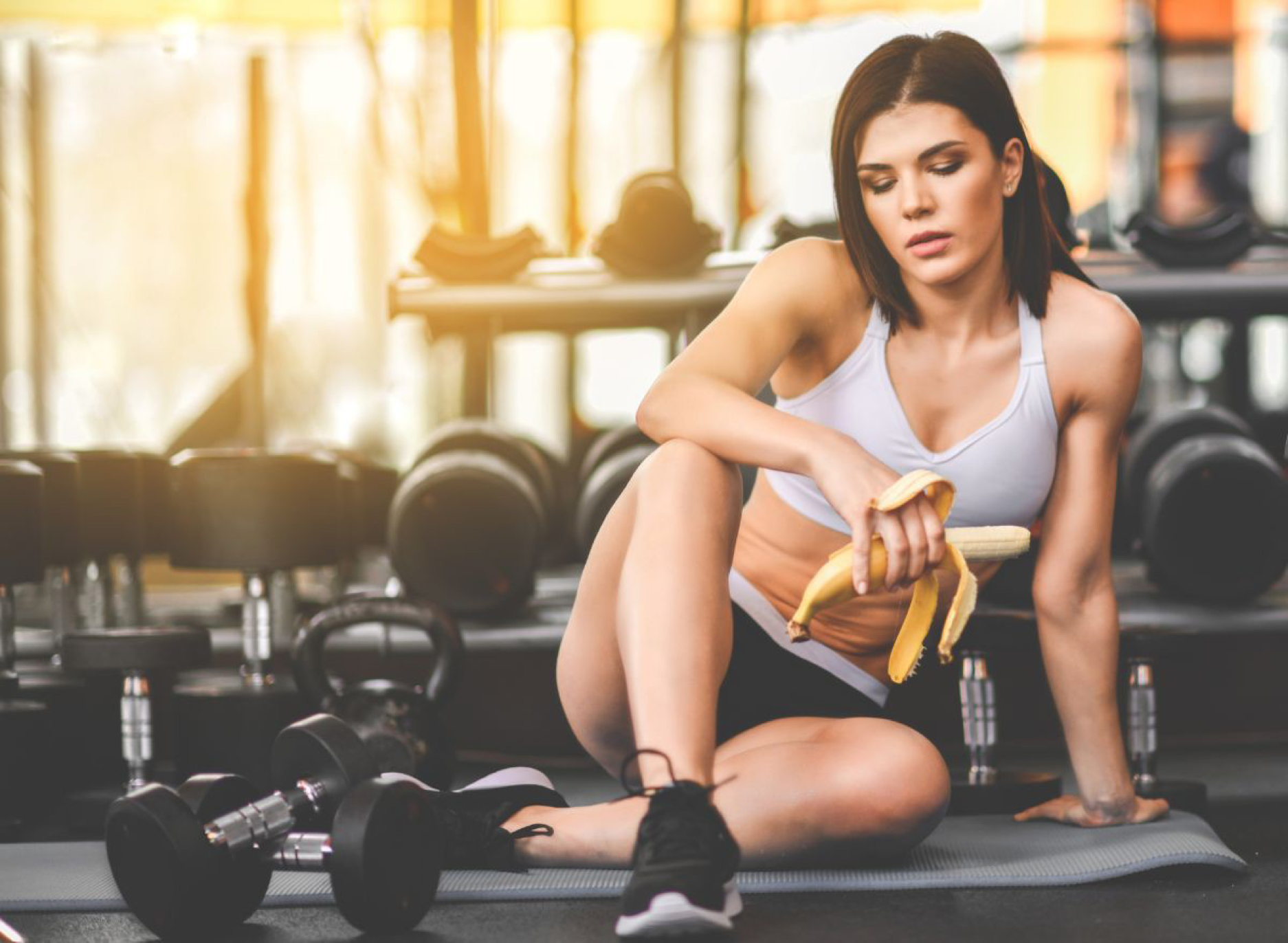Bananas are usually chalked up to be the best pre-workout snack, but what if we told you that you should actually stash the fruit in your gym bag for after your sweat session? It turns out that bananas contain a few key nutrients that are essential for post-workout recovery.
“Bananas are considered a simple, or quick-digesting, carbohydrate, which is perfect for a post-workout snack,” says Amy Goodson, RD, CSSD, LD, board certified specialist in sports dietetics and member of our medical expert board.
Here’s why: During exercise, you burn sugar (a type of carbohydrate) as a source of energy, and the longer and harder you train, the more you burn. This sugar comes from what you ate before your workout, but as you exercise, your body will begin to break down glycogen (or stored carbohydrates) from the liver and muscle, to help keep blood sugar stable and provide energy for working muscles, Goodson explains.
“After a workout, glycogen needs to be replenished. Approximately 90% of the carbohydrates you consume immediately post-workout go to replenish glycogen stores, which is why simple carbohydrates are recommended within two hours after you exercise.”
Simple carbohydrates can be found in foods like fruit and vegetables, but can also be found in more processed products like candy, baked goods, and sodas. Eating a banana after a workout is the perfect choice because it’s not processed, and it contains helpful vitamins and nutrients. They also provide around 30 grams of carbs to help replenish those glycogen stores.
Read on to learn more about how a banana can you help you after your gym time, and for more healthy eating tips, check out 5 Ways Eating More Plants May Save Your Life in 2023.
Bananas combined with a protein can help your body build muscle and burn fat
Pair your banana with a source of protein after a workout to help supercharge your muscle-building and fat-burning efforts.
“When you consume carbohydrates, your body produces insulin, which acts like a key, in that it unlocks the cell and lets nutrients from the blood into the cell for energy,” Goodson says. “While the cells are naturally more sensitive to uptaking glucose (sugar) and amino acids (protein) after exercise, consuming carbohydrates with protein causes insulin production and can help the muscles uptake the glucose and amino acids in the blood for recovery.”
So, after your workout, try blending a smoothie with a banana and your favorite protein powder for the perfect post-workout snack.
Bananas can help with post-workout inflammation
“Not only do bananas contain carbs to help spur recovery, they’re also packed with several antioxidants, including flavonoids and amines,” Goodson says. “Antioxidants help fight or neutralize free radicals (aka the bad guys that can cause damage to cells) in the body, ultimately helping to reduce inflammation caused by cellular damage.”
In fact, a March 2018 study in the journal PLOS One found that the carbs in bananas helped lower inflammation levels after people biked about 46 miles.
How long after a workout should you eat a banana?
“The ‘two-hour window of opportunity’ says that the body does a better job of utilizing carbohydrates and protein within two hours of your workout,” Goodson tells us.
Typically, sports dietitians recommend eating a snack with both carbs and protein as soon as possible after a workout— within about 45 minutes— to kick the body out of catabolism, or “breakdown mode,” and put it into anabolism, or “building/recovery mode.”
“It’s important to note that if someone eats a balanced diet with carbohydrates on a regular basis, it is likely that they will replenish their glycogen stores within 24 hours,” Goodson says. So, make sure to eat balanced meals that include healthy carbohydrates throughout the day, too.
How does a banana compare to a sports drink?
Sports drinks contain four main things: fluid, carbohydrates, sodium, and potassium. “Post-workout, these drinks are designed to help you rehydrate with fluid and electrolytes (sodium and potassium), and provide carbohydrates to help replenish glycogen,” Goodson says.
A large banana has about 10% of the daily value of potassium, making it a good source of the mineral. However, it doesn’t contain any sodium. “The average person loses approximately three times the amount of sodium in sweat than potassium, so while both are important, typically more sodium is needed,” says Goodson. “So, a banana has two of the four necessary components (carbs and potassium) that sports drinks provide, but it’s missing sodium and fluid.”
All in all, bananas contain important elements like carbohydrates, antioxidants, and potassium, to help your body recover after a workout, but a complete post-workout snack would also contain high-quality protein.
“A banana can be a part of your post-workout nutrition, but on its own, it is missing some necessary components when compared to a sports drink,” Goodson says.
The bottom line: Pair your post-workout banana with a source of lean protein and minerals. A smoothie with a banana and protein powder (which usually contains some sodium) is a great, nourishing option.




